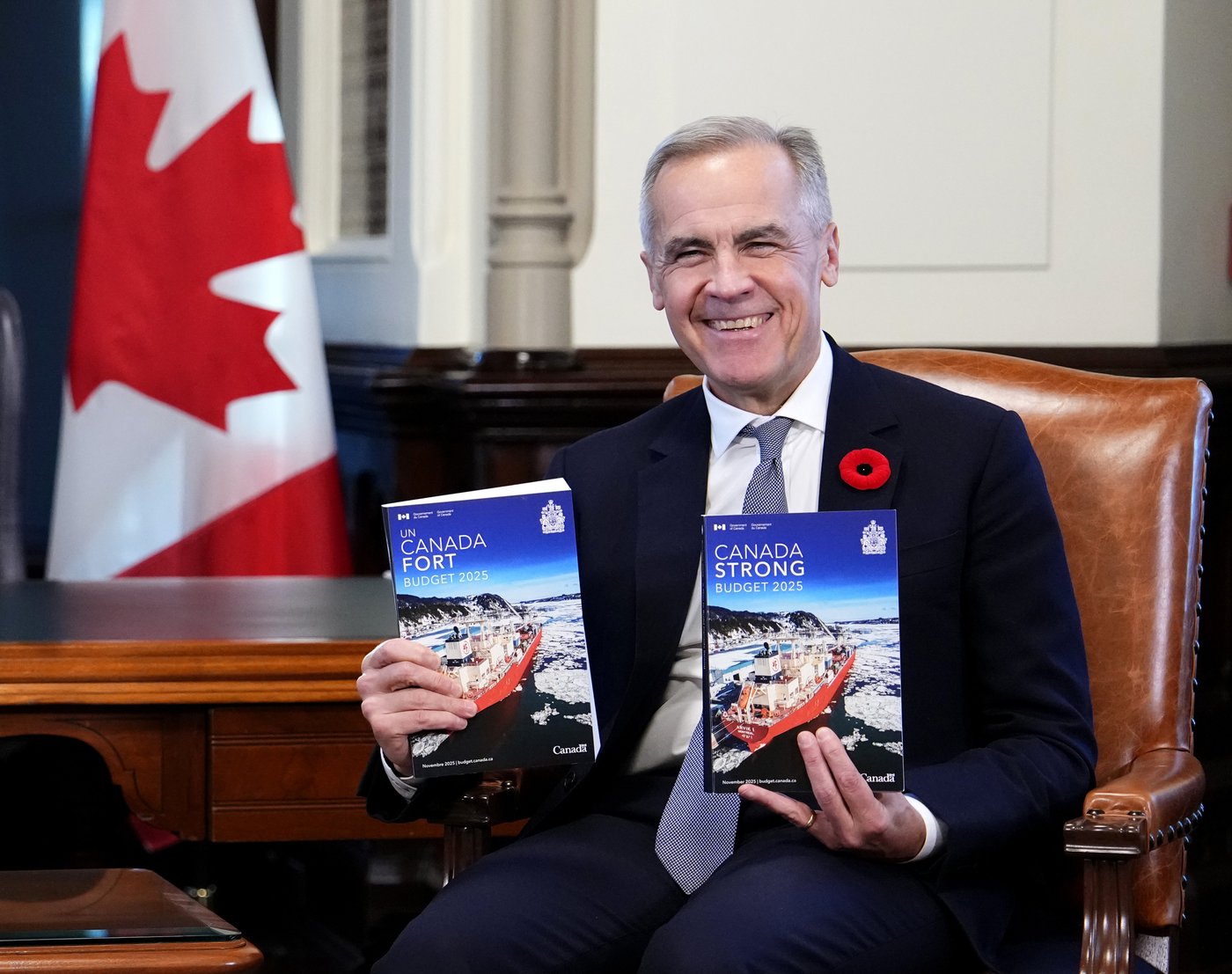Elevate your local knowledge
Sign up for the iNFOnews newsletter today!
Sign up for the iNFOnews newsletter today!
Selecting your primary region ensures you get the stories that matter to you first.

OTTAWA — Prime Minister Mark Carney secured broad support from across party lines and provincial borders for some major items in his first federal budget, new polling suggests.
But one pollster warns Carney risks reopening old regional wounds if he doesn’t show progress soon on critical infrastructure and housing files.
Leger polling this week showed broad support among respondents for a number of flagship proposals in the budget tabled on Nov. 4.
The budget forecast a deficit of $78.3 billion for this fiscal year and pitched billions of dollars in net new spending aimed at pivoting Canada’s economy away from reliance on the United States.
Some 76 per cent of those surveyed were in favour of the Liberals’ proposed 10-year, $51-billion local infrastructure fund. Reduced immigration targets received 74 per cent approval, while 60 per cent of respondents backed plans to spend billions of dollars to modernize Canada’s military.
A majority of respondents (55 per cent) were also in favour of shrinking the public service, while 37 per cent supported the decision to boost CBC/Radio-Canada’s funding by $150 million.
The poll surveyed 1,565 adult Canadians between Nov. 7 and Nov. 9. The polling industry’s professional body, the Canadian Research Insights Council, says online surveys cannot be assigned a margin of error because they do not randomly sample the population.
Despite high levels of support for individual budget items, just 30 per cent of respondents said they supported the budget overall.
Andrew Enns, Leger’s executive vice-president for Central Canada, said the budget appeared to fall short on affordability supports for Canadian households.
But he pointed out that many of the budget’s headline items won solid support from across the country.
Respondents in most provinces expressed strong support for local infrastructure funding, Leger polling found.
The poll found 77 per cent of Ontario respondents and 80 per cent of those from Atlantic Canada support the budget’s plan to reduce immigration targets, topping support in other regions of the country.
Alberta, notably, was at or above the national averages on approval of the budget’s infrastructure and immigration plans. Enns said that marks a departure from previous Liberal budgets.
Leger polling conducted after the 2024 budget was tabled in April of last year — the last budget presented under former prime minister Justin Trudeau — showed nearly two-thirds of Albertan respondents felt the country was headed in the wrong direction, while 56 per cent of the general population said the same.
“Especially some of the later Trudeau budgets, residents in Alberta, for example, it just didn’t matter what was in the budget — they just weren’t going to support it,” Enns said.
The federal budget is set for a vote in the House of Commons next week. It’s a critical test for the minority Liberals, who have already survived votes on a pair of amendments to the budget last week.
Several items in the proposed spending plan appear to have cross-party support.
While Liberal supporters overwhelmingly applauded the bulk of the budget, Leger polling showed Conservative-leaning voters were also 85 per cent in favour of tamping down on immigration — the highest level of approval for that measure recorded for any group of party supporters.
Likely NDP voters were the strongest backers of local infrastructure spending, at 90 per cent approval.
Some 42 per cent of respondents polled indicated they were in favour of the Liberals’ focus on long-term economic growth and nation-building over short-term affordability supports. Half that share said they opposed that approach.
Enns said the Liberals still have “good will” in largely conservative areas of the country like Alberta, thanks to their pivot to major projects and a broad focus on economic growth.
But he also warned that new-found trust may be fragile.
The government will have to start showing action on nation-building initiatives and homebuilding, Enns said. While it doesn’t have to complete those expensive and time-consuming projects right away, he said, it should try to convince Canadians that it’s backing up its talk with action.
“I mean, major projects — can we show progress on some of these within a year?” Enns said.
The Liberals have launched two new agencies — the Major Projects Office and Build Canada Homes — to pursue Ottawa’s lofty homebuilding and infrastructure ambitions.
The Liberals unveiled an initial set of five major projects up for consideration to be expedited by the new office two months ago. Carney is scheduled to unveil the next tranche of projects in British Columbia on Thursday.
Carney offered his strongest endorsement yet of the idea of a new oil pipeline project in Alberta when speaking at the Canadian Club Toronto last week. He said his government is on top of the “pipeline stuff” and told the business crowd not to worry, “it’s going to happen.”
“Well, something’s going to happen, let’s put it that way,” he added, joking about undermining his own bargaining position.
This report by The Canadian Press was first published Nov. 13, 2025.
— with files from Kyle Duggan
This site is protected by reCAPTCHA and the Google Privacy Policy and Terms of Service apply.
Want to share your thoughts, add context, or connect with others in your community?
You must be logged in to post a comment.